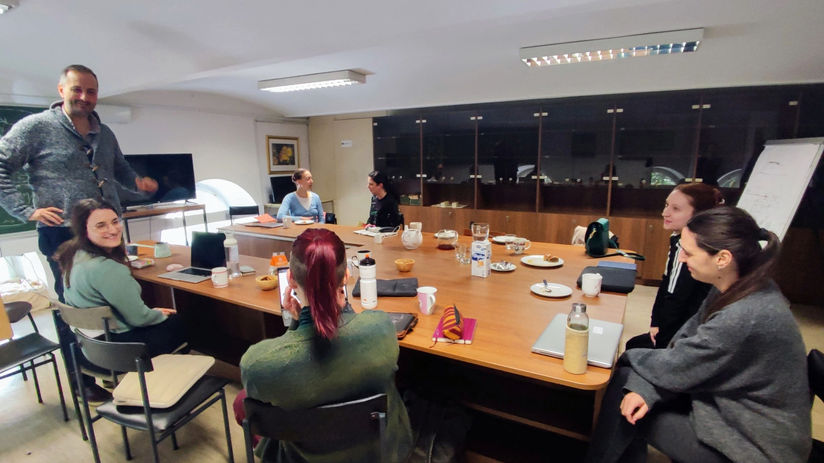Summary
Summary
Dr. Marieke van der Vugt from the University of Groningen (Netherlands) is a computational cognitive neuroscientist — and also a genuinely lovely person to chat with. She shared with us some of the key areas of her research.
How the Content of Mind Wandering Affects Working Memory
In this experiment, Marieke and her colleagues explore whether self-evaluative thinking — like reflecting on your own traits — disrupts working memory and affects mood more than more neutral, topic-based mind wandering. Participants are given a working memory task: they must remember where on the screen the letter X appears. While doing this, words float around the screen, providing a distraction. In the control group, the words describe everyday objects, and participants categorize them. In the experimental group, the words describe personality traits, and participants are asked whether those traits apply to them.
The results: People who were prompted to reflect on themselves not only had more trouble remembering the positions of the Xs — they also felt slightly worse afterward, which provides an insight into how self-evaluative thinking may be a greater distraction for our memory as well as dampen our mood.
Biomarkers of Meditative States and Mind Wandering
Marieke is also investigating whether different states of mind — like focused meditation, self-referential thinking, or"sticky thinking" — can be detected using EEG. In one study, participants wear EEG caps while moving through different mental states: meditation, self-reflection and “sticky thinking”, induced by asking them to think about something that worries them. Her team is exploring whether these mental states produce distinct patterns in brain activity. In a related study, she also investigates self-boundary dissolution — a state often reported during deep meditation — and whether it can be measured and even induced via neurofeedback.
The Monastic Debate Project
This part of Marieke’s work was really new and intriguing for us. She collaborates with Tibetan monks in a monastery in South India, where monastic debate is a central part of their intellectual practice. During these debates, one monk (the challenger) tries to get the other (the defender) to agree with a seemingly contradictory statement — for example: "Everything that is a color is red." Now imagine two young monks, wearing EEG caps, passionately debating that sentence. What can brainwaves tell us about what's going on?
It turns out, quite a lot. Frontal midline theta activity — linked with deep focus and cognitive effort — increases during debates, especially in experienced monks compared to novices. Additionally, alpha waves show higher inter-brain synchrony when the monks agree with each other. But perhaps the most thought-provoking findings are about cultural bias in psychological testing. Experienced monks show remarkable working memory performance during live debates, yet score lower on standard Western working memory tests — even lower than novice monks, and much lower than Dutch university students.
This raises a big question: Are these tests measuring actual cognitive ability, or are they assessing skills shaped by culture and education?








